AITA for refusing to babysit for my siblings anymore and telling my family they can’t use me as free childcare and treat me like sh*t for being an unwanted pregnancy?
Some families shower their youngest child with love and affection. Others? Not so much. In a twisted version of sibling rivalry and parental resentment, OP (16M) grew up knowing he was never truly wanted. Labeled the “mistake” child, excluded from family events, and treated as free childcare, he finally hit his breaking point.
Now, as he stands his ground and refuses to be their convenient babysitter anymore, his family isn’t happy. But does that even matter? Is OP justified in walking away, or should he have handled things differently?

‘AITA for refusing to babysit for my siblings anymore and telling my family they can’t use me as free childcare and treat me like sh*t for being an unwanted pregnancy?’
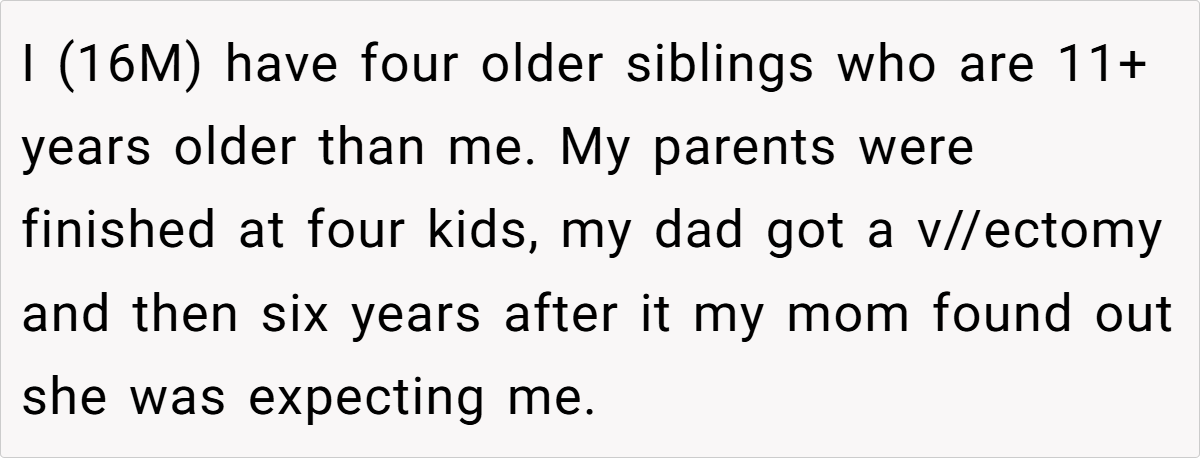

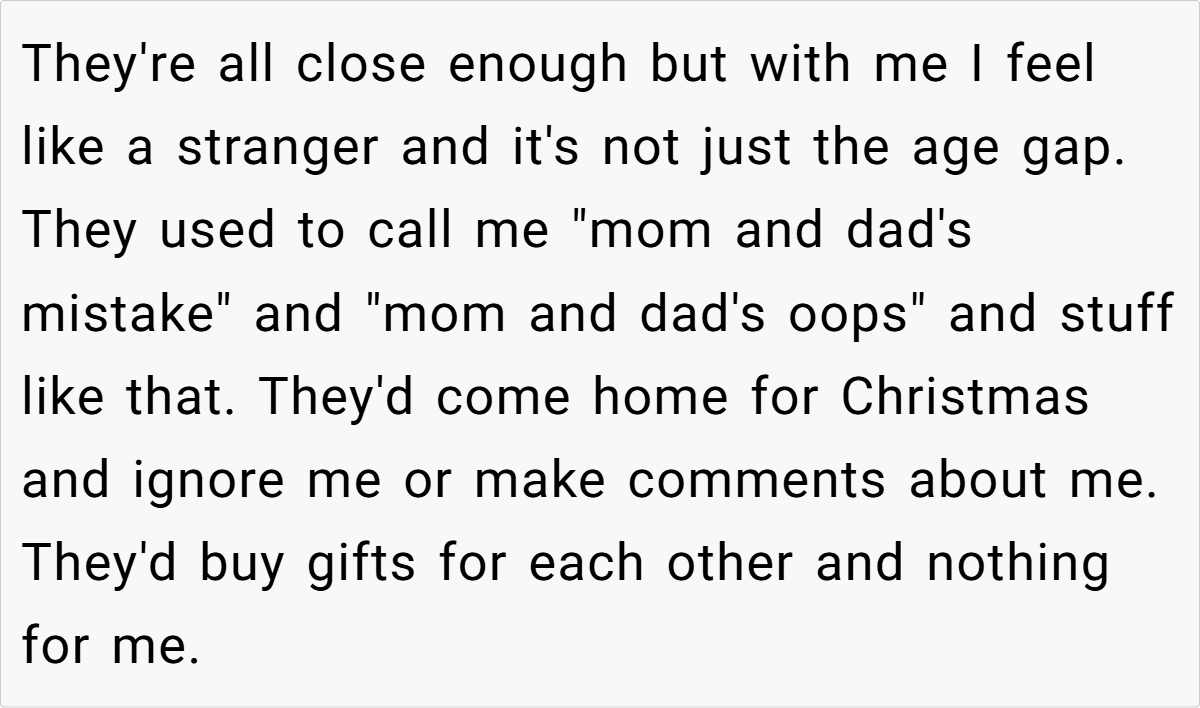
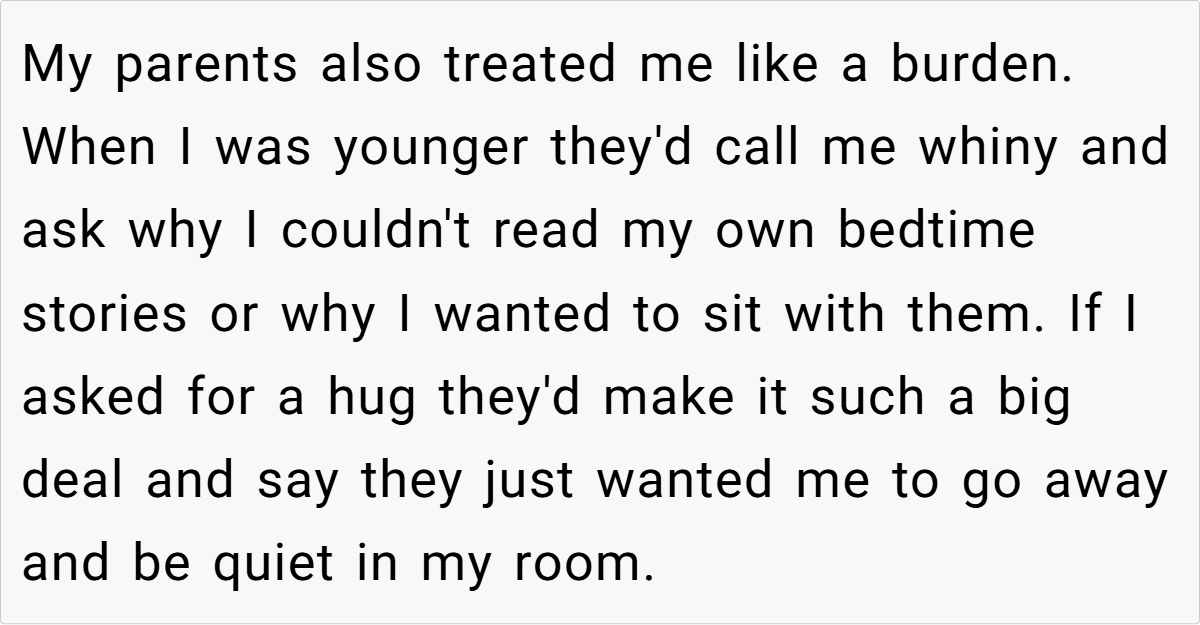
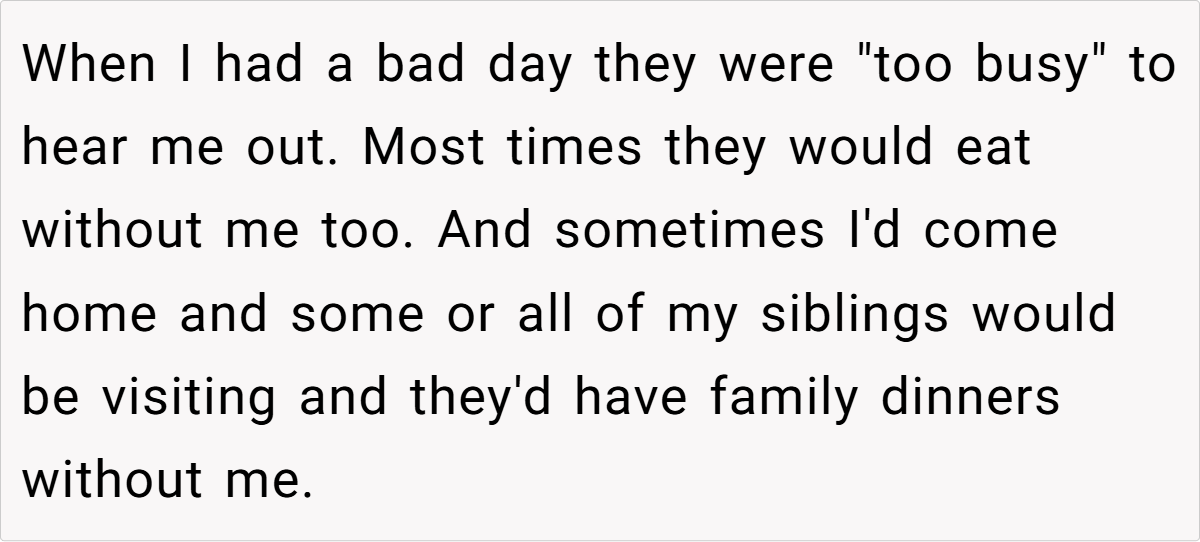
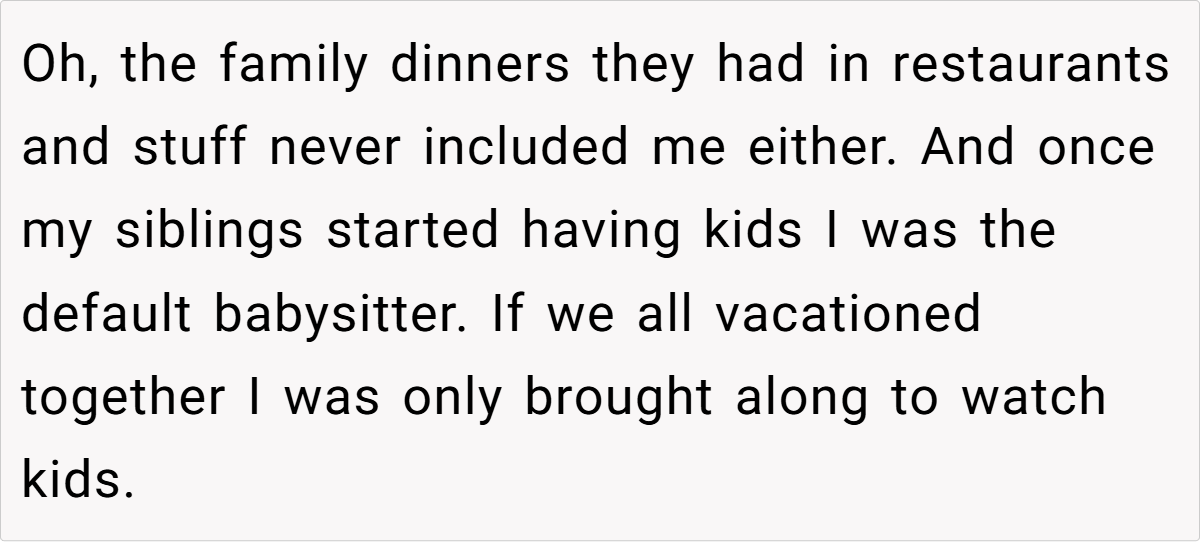
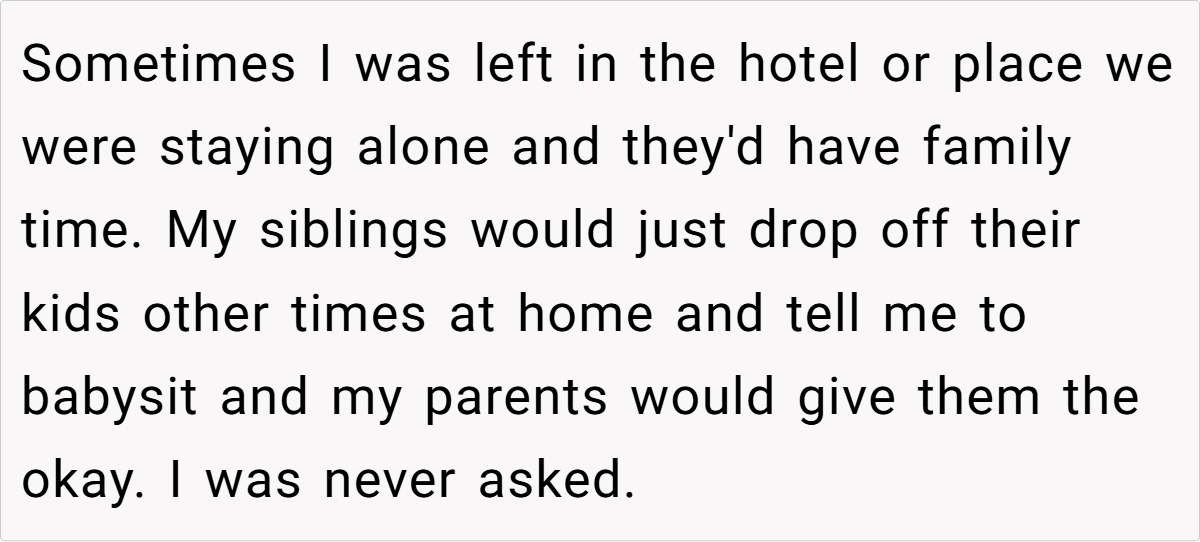
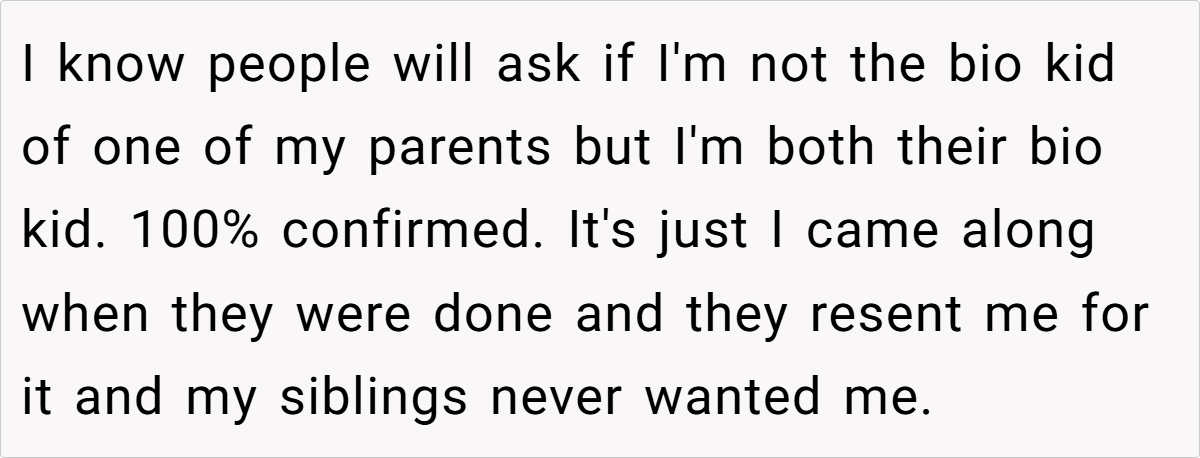
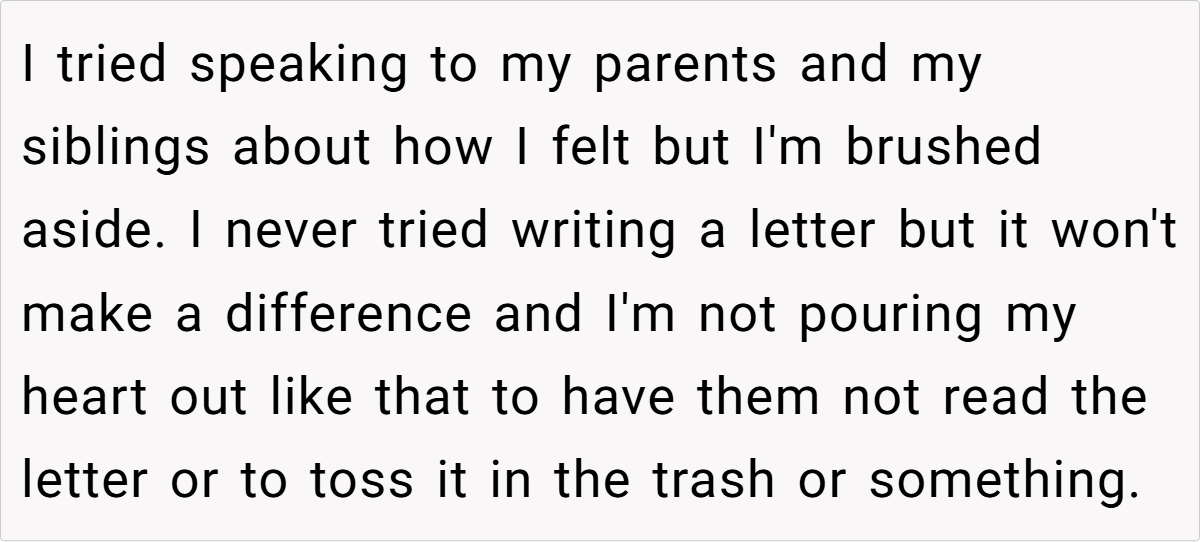
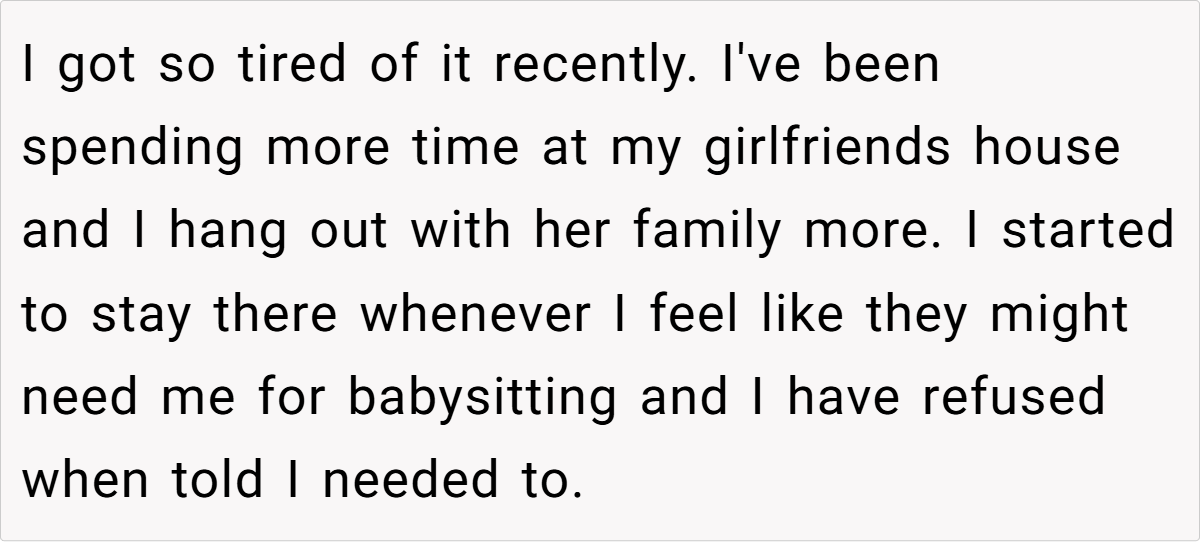

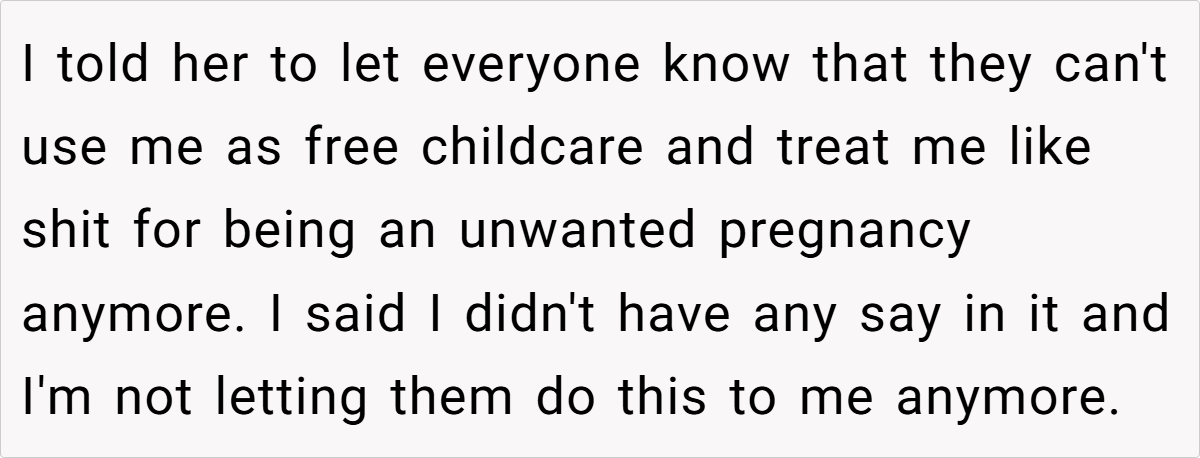

Expert Analysis:
The Psychological Impact of Being the “Unwanted” Child
Growing up feeling like an outsider in your own family is one of the most damaging experiences a child can face. Research in developmental psychology shows that consistent neglect and exclusion from family dynamics can have long-term emotional consequences, including low self-esteem, difficulty forming secure relationships, and chronic feelings of unworthiness.
According to Dr. Susan Forward, author of Toxic Parents, children who grow up in emotionally neglectful households often experience “learned helplessness,” a state where they internalize the idea that their needs and emotions don’t matter. This can lead to patterns of self-sacrifice, people-pleasing, or, in some cases, deep-seated resentment.
OP’s situation aligns with this pattern—he wasn’t just emotionally neglected but was actively treated as an inconvenience by his parents and siblings. This kind of dynamic breeds resentment, and it’s no surprise that OP finally had enough.
The Issue of Parentification
What’s worse is that OP wasn’t just ignored—he was forced into a role that wasn’t his to play. The act of making a child take on adult responsibilities, particularly caregiving for younger siblings, is known as parentification.
According to the Journal of Child & Family Studies, children who are forced into excessive caregiving roles often develop symptoms of anxiety, depression, and emotional exhaustion. They grow up feeling more like a servant than a family member, which leads to deep resentment and, eventually, estrangement.
OP’s experience with forced babysitting, being left behind on family outings, and only being included when convenient is a textbook case of emotional neglect and parentification.
The Long-Term Impact of Family Neglect
The sad reality is that families like OP’s often don’t realize the damage they’ve done until it’s too late. Studies on family estrangement show that once a neglected child gains independence, they are far more likely to cut ties completely.
A study from the University of Cambridge found that 60% of individuals who experienced family neglect as children eventually went no-contact with their parents and siblings.
If OP’s family continues on this path, they may wake up one day to find that their “oops” child is gone—and he won’t be looking back.
Lessons Learned & Moving Forward
- Neglect Leaves Scars – OP’s family may have treated him as an afterthought, but that treatment has consequences. Emotional neglect isn’t just painful in the moment—it shapes a person’s entire view of self-worth and belonging.
- Parentification Is a Form of Abuse – Forcing a child into unpaid caregiving, especially when they have no say in the matter, is neither normal nor acceptable. OP was treated like free labor rather than a valued family member.
- Setting Boundaries Is Crucial – OP refusing to babysit was his first real step in reclaiming control over his own life. Boundaries are necessary when dealing with toxic family members who only see you as useful when they need something.
- Planning for the Future Is Key – OP has two years until legal adulthood, and while his family may not care about his well-being, he needs to prioritize his own future. That means saving money, securing important documents, and building a support system outside of his immediate family.
Here’s what Redditors had to say:
Many users said that OP was NTA and encouraged him to stand his ground, get a job, and start preparing for independence. Others shared their own stories of being the neglected youngest sibling and how they eventually walked away from their toxic families.
A few pointed out that OP should start protecting himself legally and financially—getting important documents in order, saving money, and preparing for the moment he can leave for good.


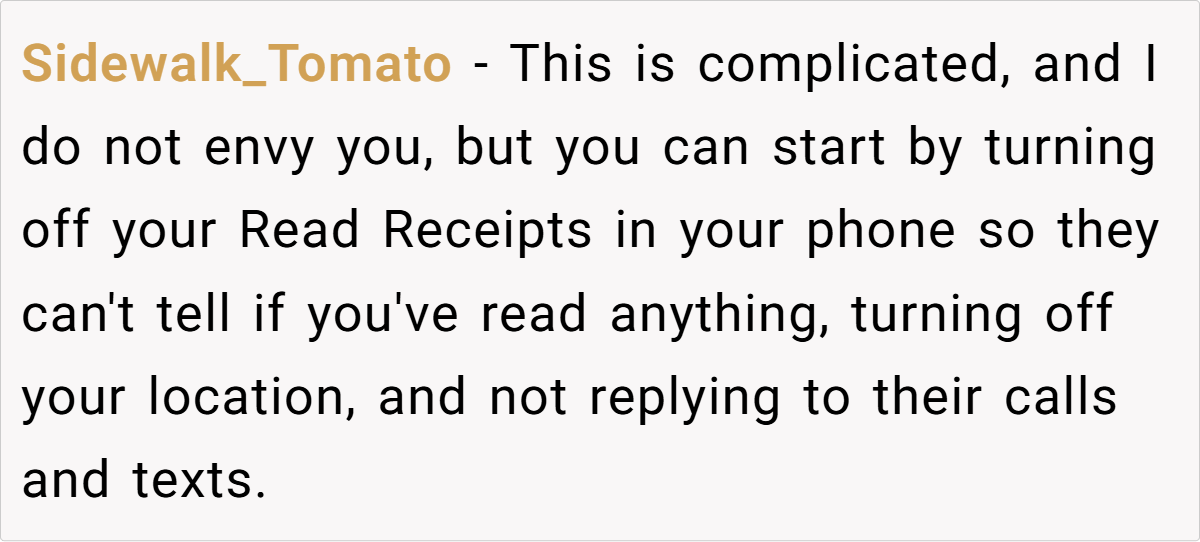
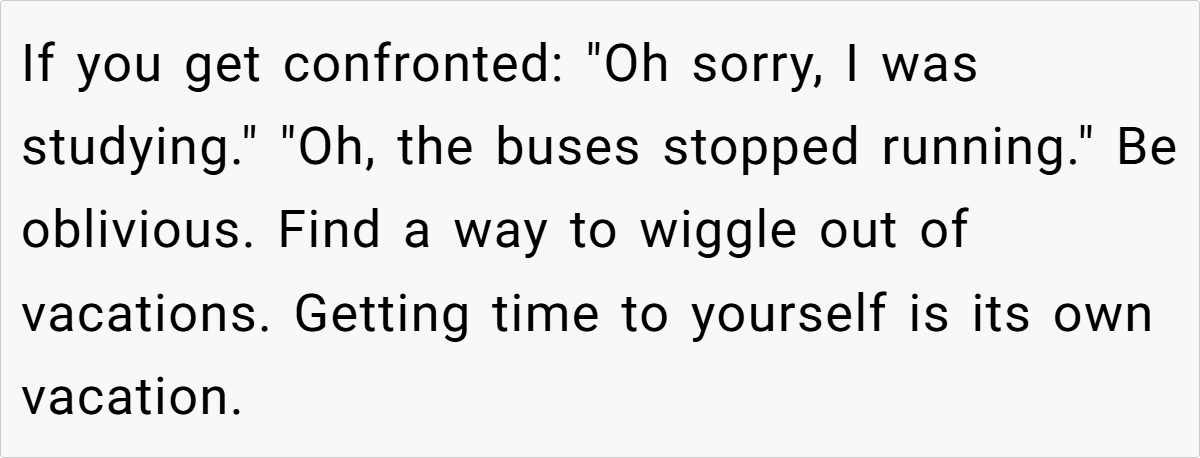
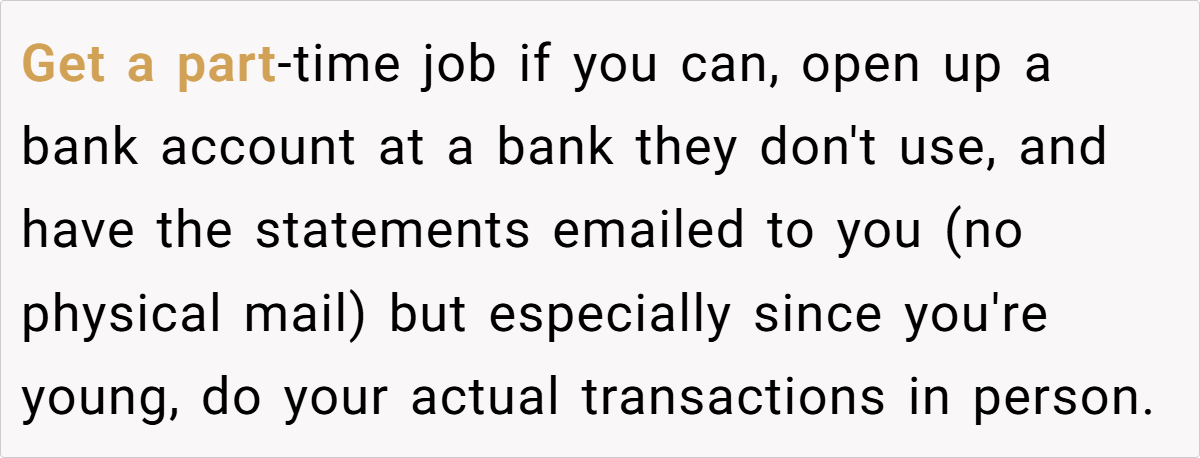
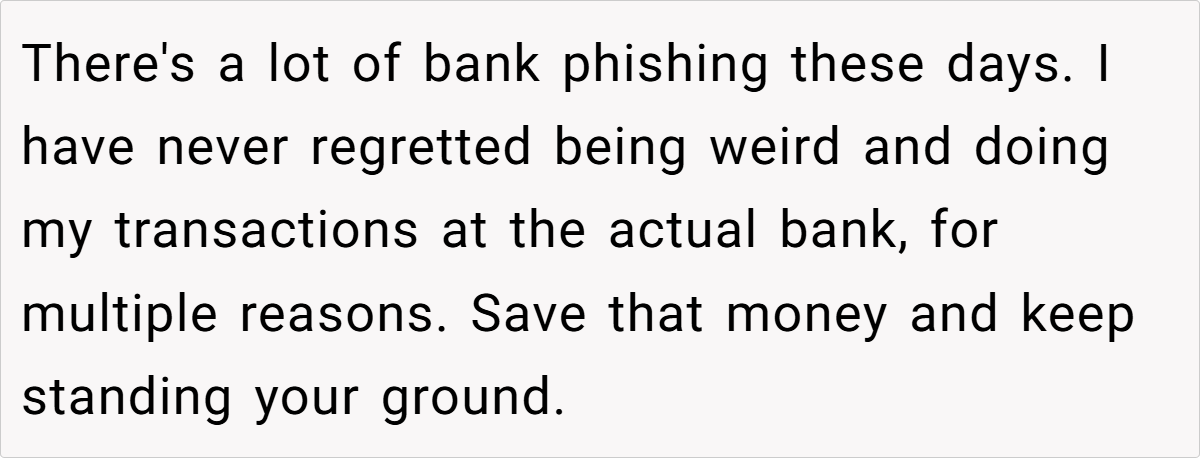

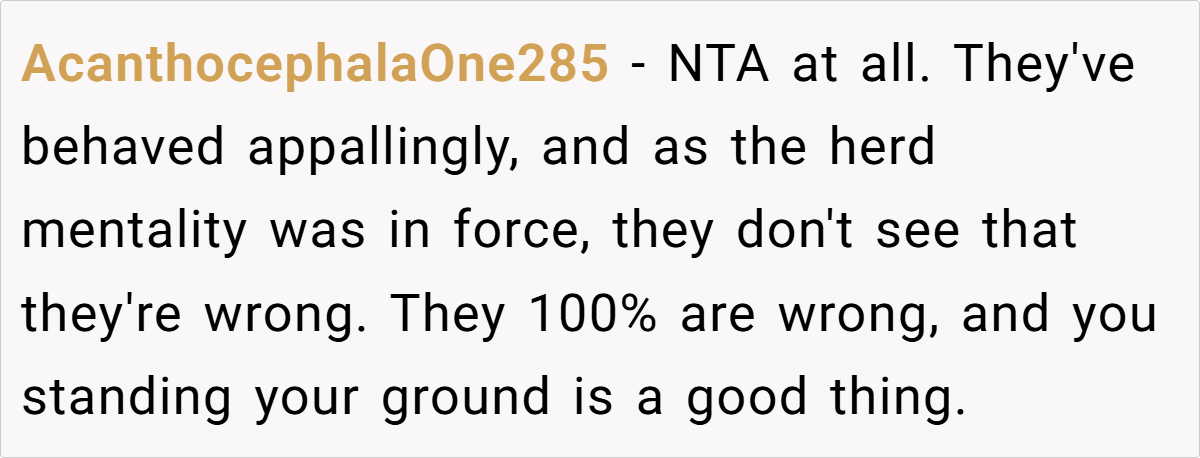

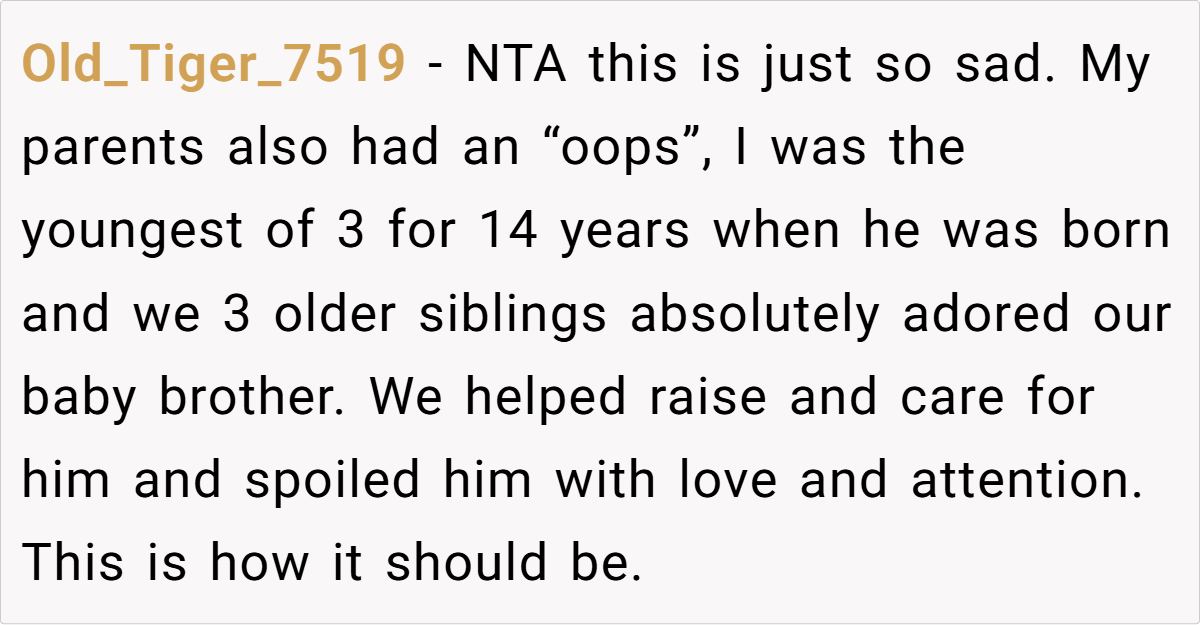
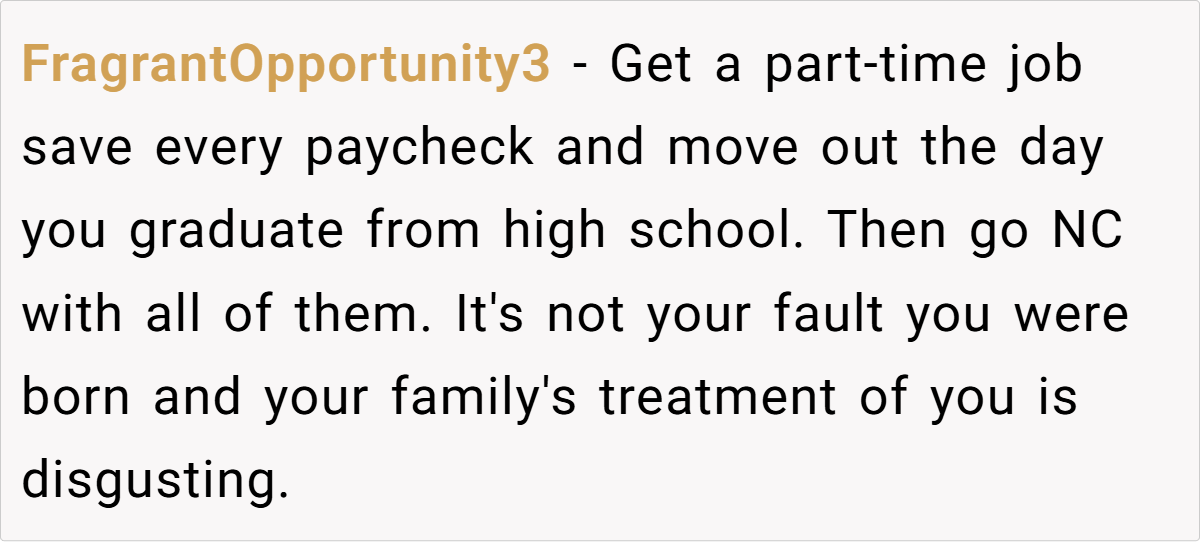

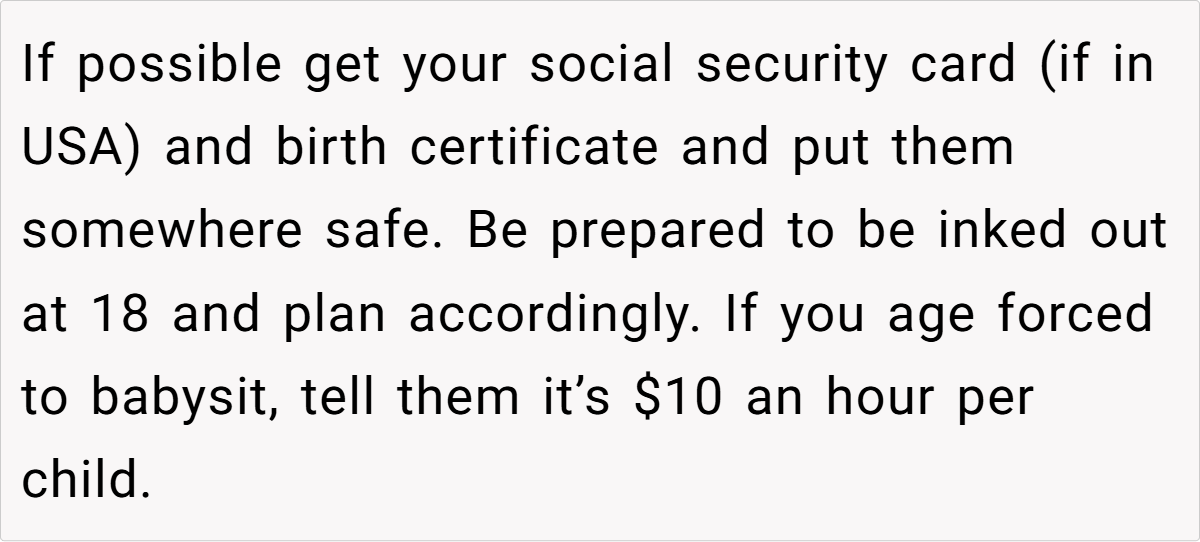
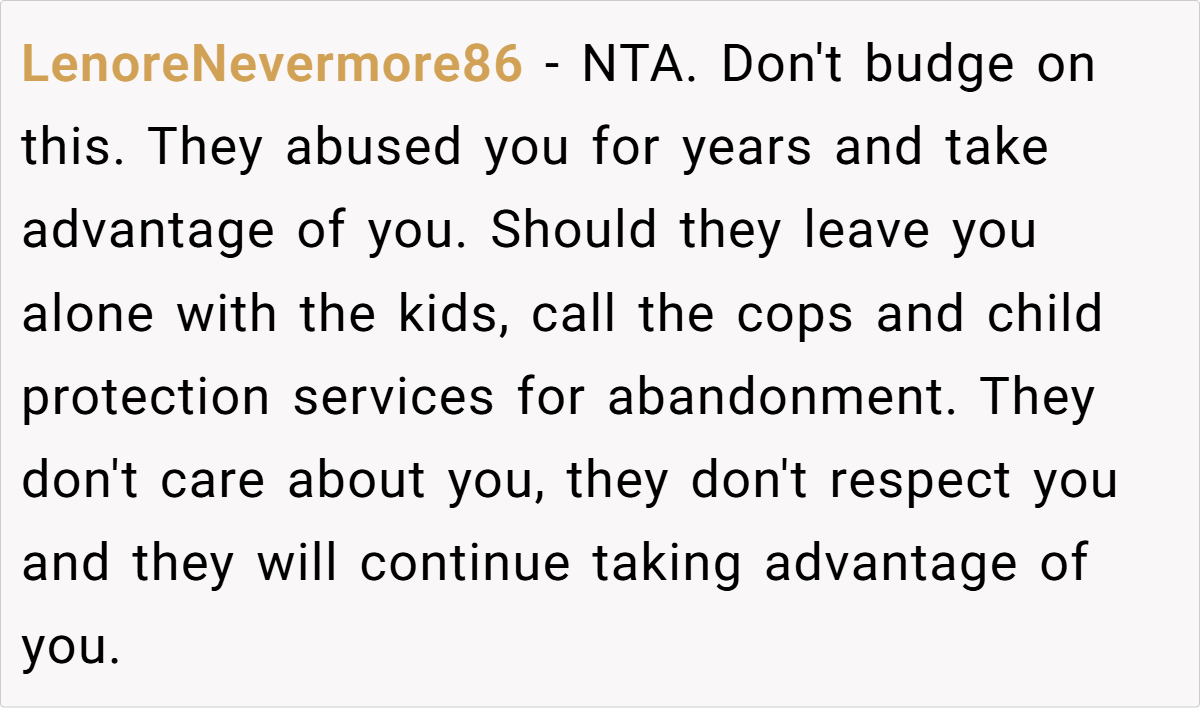
Some people are born into families that love and cherish them. Others are born into families that tolerate them at best and exploit them at worst. OP is in the latter category, but that doesn’t mean he has to stay trapped in that reality forever.
Standing up to his family was the right move. Now, the next step is ensuring he builds a future where he is no longer at their mercy. What do you think—should OP go no-contact the moment he turns 18, or is there any hope for reconciliation? Let’s discuss.

